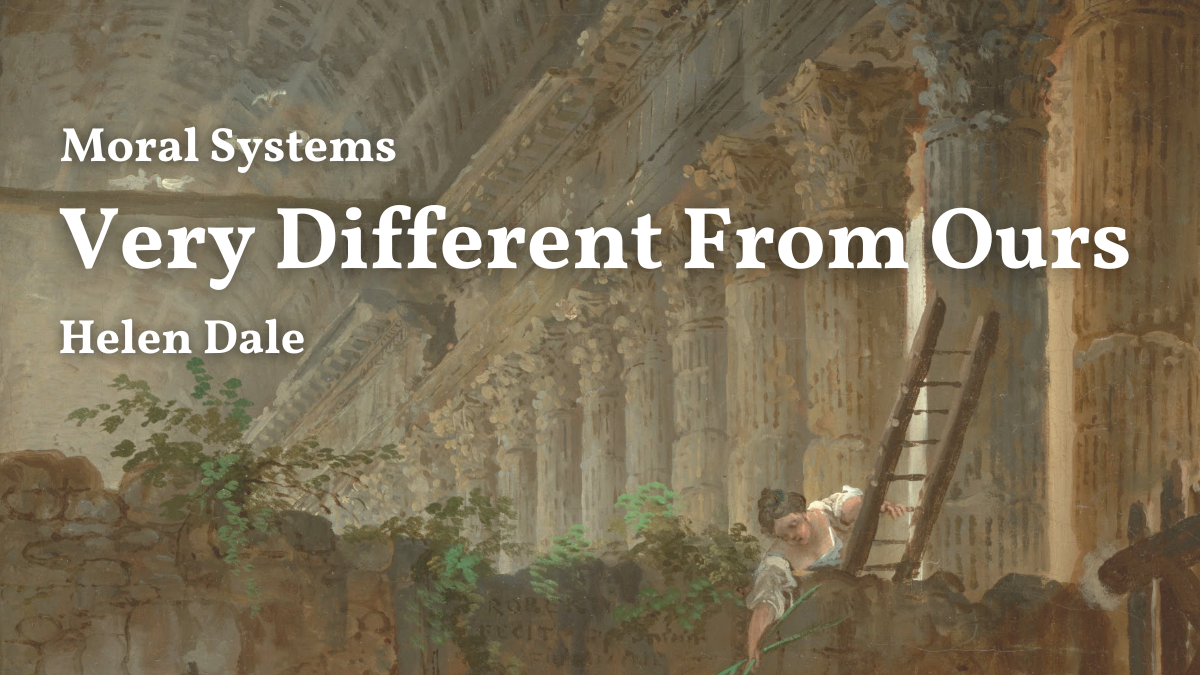This essay is part of a symposium, “Are We Repaganizing?” See the whole collection here.
Three things came to mind when I read Louise Perry’s essay, “We Are Repaganizing.”
First, legal abortion isn’t “the bleeding edge” of dechristianisation, while legal euthanasia is genuinely post-Christian. In saying this, I’m drawing (as Perry does) on Tom Holland’s Dominion. The arguments pro-choice campaigners make—that every woman’s body is her own and must be respected as such by every man—derive from Christian teaching, just as pro-life campaigners’ arguments do. The significance of Paul’s teaching on female bodies is precisely that it applied to all women, just as legal abortion in modern liberal democracies is afforded to poor women in a way that is hard to justify using pre-Christian morality.
The Romans were well capable of enacting strikingly modern laws against rape, laws which treated it as a crime against the person and not property, and the offender’s fault. But those laws were unequally enforced as a matter of public policy: only citizen women got the benefit.
Euthanasia, by contrast, is distinctively pagan.
Christianity not only condemned suicide but for many centuries punished suicides’ families: “self-murder” was both a crime at common law and a mortal sin. Suicides were denied a Christian burial. Instead, they were carried to a crossroads in the dead of night and dumped in a pit, a wooden stake hammered through the body to pin it in place. Meanwhile, the deceased’s family could not inherit. Any property would escheat—that is, be forfeit to the Crown.
Meanwhile, all Roman religions of which we have record considered suicide a noble act, from the soldier who killed himself rather than be captured, to the defeated general who fell on his sword, to the sick old woman who refused to be a burden on her children. It’s a reminder they had a moral system very different from ours. Of course, there were circumstances where people tried to talk someone out of suicide—think Livy’s account of Lucretia’s death. These happened not because Romans thought suicide was wrong, but for other reasons. “The door is always open,” said the Stoics. The door, of course, led to willed and chosen death, either in company or alone. The Canadian MAID advertisement Perry discusses is consistent with this tradition, and a genuine instance of immanent, sacral paganism.
Secondly, I’m not persuaded that morality giving priority to the weak and vulnerable is always wise. Just as Perry has an “agnostic” relationship to Christianity and abortion, I have an agnostic relationship to classical paganism and its disregard of victims. On this point, people often reach for Nietzsche’s dismissal of Christianity in Genealogy of Morals without troubling to tease apart what was his own invention and what he derived from classical sources. The nastiness that produced so many Nazi admirers is mainly Nietzsche, I’m afraid, while a key Roman insight—suffering doesn’t improve people—is left to shock moderns, who don’t test whether it is true.
There are no guarantees victims of wrongs can turn the lead of “lived experience” into golden understanding. The downtrodden do not always evince decent behavior and moral goodness. Something more is needed. The Soviet Army liberated tens of thousands of prisoners from Auschwitz in 1945. Only one of them, Primo Levi, became a titan of post-war literature. Erich Honecker spent ten years in a Gestapo prison. That experience does not excuse his subsequent deeds as the DDR’s dictator.
Finally, I think all ethical systems are incomplete. Sometimes virtue ethicists will be right: the law condemns murder outright and doesn’t attempt to “manage” it. It remains always and everywhere illegal. Sometimes consequentialists will be right: prohibition of both drugs and alcohol produces such catastrophic violence that policing becomes impossible. More people die thanks to that violence than would die if drugs and alcohol were legal and regulated. This does not make the latter policy solution ideal, but it does rule out policies directed at collective virtue.
Sometimes there’s an uneasy trade-off between virtue ethicists and consequentialists. Abortion and euthanasia are clear examples. When juries won’t convict—as I discuss in the piece Perry quoted in her essay—the law is obliged to protect itself from morality. Letting a principle fall into desuetude is better for society than having both the law and the administration of justice brought into disrepute. When jurors and voters reject your moral claims (as is now happening across the US), you must reconsider your claims, not blame jurors and voters. And before you shout, “but the voters are wrong!” I invite you to read this observation from a disappointed Bertolt Brecht.



